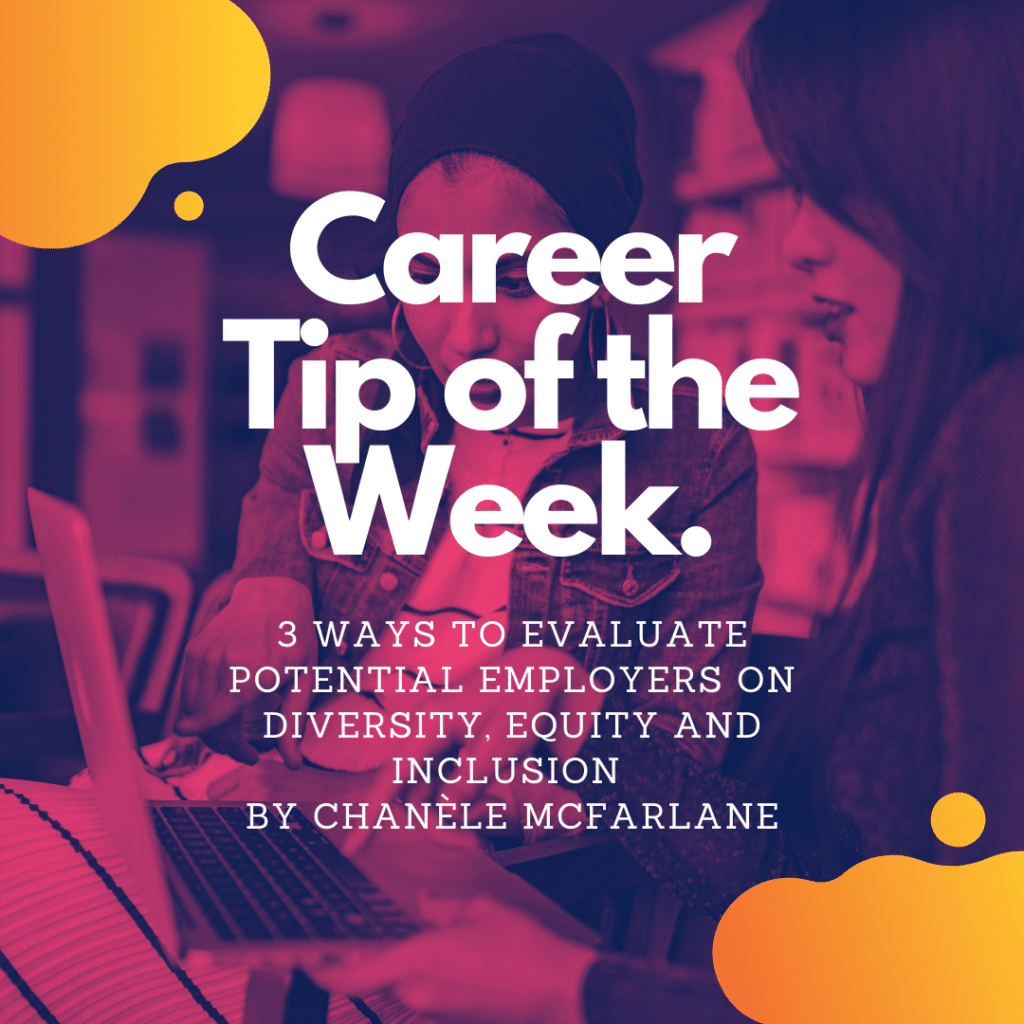By: Chanèle McFarlane
Over the course of the pandemic, companies have had a heightened focus on hiring diverse talent. With the racial reckoning that began amidst the height of the pandemic last year, organizations have scrambled to showcase just how much they prioritize diversity, equity and inclusion (DEI). The problem is, how do we know if their efforts are actually genuine or performative?
This is a safe space, right? I’m just going to come right out and say it: many companies’ DEI efforts appear to be performative. There doesn’t seem to be real conviction behind the well-crafted statements on social media and pledges to “listen and learn.” This makes job (or internship) searching as a Black, Indigenous or Woman of Colour particularly challenging as we seek out organizations that are not only committed to diversity recruiting but also creating inclusive and equitable work environments where we can thrive. As
research by Catalyst has highlighted, many people of colour in Canada (and the US) experience an emotional tax at work— “the combination of being on guard to protect against bias because of race, ethnicity, and gender and experiencing the associated effects on health, well-being, and ability to thrive at work.”
How do you actually uncover the genuine employers who are committed to the journey and doing the work? How can you find out if a company is actually a psychologically safe space for you to show up authentically?
Here are 3 things you can do to evaluate potential employers on their commitment to diversity, equity and inclusion to get you started:
Look at the job description
Job descriptions can actually provide great insight into where the company is on their diversity, equity and inclusion journey. Pay attention to the type of language that they use – does every word seem intentional and inclusive? Are they open to candidates with unique educational backgrounds and lived experiences? If a credential is required for the position, do they accept credentials from colleges and universities? Are the values of the company made clear? In an
interview, Author Minda Harts also suggests looking out for signs that the company has considered any potential conscious and unconscious bias.
Do a thorough review of digital channels
Take some time to go through their website and social channels. Check out the company’s About Us page to see if EDI is meaningfully reflected or singled out in the company’s diversity pages only. Do you see meaningful representation in the company’s middle management and senior leadership? Does the company have ongoing conversations around diversity, equity and inclusion or only during specific months and after current events? Are you able to find lots of information on the work they’re doing internally? More importantly, do they take an intersectional approach to their efforts?
Your research should also go beyond the company’s own channels. Search for employees on LinkedIn and pay attention to the makeup of the team. Are they really as diverse as they say they are? How many Indigenous and racialized employees (and Indigenous and racialized women) are there, if any? To dive even deeper, you could also reach out directly to someone to get some first-hand (and hopefully, honest) feedback. Here’s a short and sweet message you could send via LinkedIn:
Hi [insert name here],
I’m considering applying to [insert company here] and have been doing some research to learn more about the company. I noticed you work there [or have worked there in the past] and was hoping you’d be willing to share a bit about your experience with me? If you’re able to spare 15 minutes for a phone call or to send your thoughts via email, I’d very much appreciate it!
Aside from this, don’t forget about Glassdoor. It’s definitely worth spending a few minutes combing through the reviews to see what past and current employees say about the culture. The goal is to collect as much information as possible so that when you receive an offer, you can make an informed decision.
Interview your interviewer
Your job interview is a prime opportunity for you to fill in any information gaps you were unable to fill with your own research. Yes, they’re interviewing you but you’re also interviewing them – pay attention to what they say
and how they say it. Here are a few questions you may consider asking:
What has your organization done in the last 12 months to advance inclusion internally?
This is where the interviewer should be able to speak to programs and support that is provided, ideally with specific examples. Once in a virtual job interview, I asked about what support is provided for working parents. I was pleasantly surprised when they shared their screen to talk through an internal document regarding their values and approach to creating a supportive work environment for parents. It was the first and so far, only time that an interviewer went above and beyond like that and it spoke volumes in terms of their genuine commitment.
What career development opportunities do you provide?
Ideally, you want to hear that they have prioritized advancing racialized employees to leadership levels through access to leadership, development programming and ensuring equitable access to career-enhancing opportunities. Many companies are just focused on hiring diverse talent but where we see the gap is in leadership development. As this
article by Randstad accurately describes, racialized women have a very complicated journey to leadership due to less support from leaders, lack of access to development programs and a lower promotion rate than non-racialized colleagues.
Can you tell me about the diversity, equity and inclusion programs or initiatives in place at your company?
Typically, this is when the interviewer may speak to employee resource groups and development programs that are available to join. I personally believe it’s a bit of a red flag if they’re unable to answer this question or if they do, it’s a very generic and brief answer. Even if they are in the beginning stage of building out programs, they should still be willing to speak to where they are now and what their plans are for the future.
How do you create psychological safety in your team? How do you encourage everyone to contribute?
Last Summer, AHF hosted a webinar on Navigating Your Career as a Woman of Colour in Uncertain Times, and Shahzia Noorally, HR leader and host of the
Colour Gap podcast, shared this question as another way of assessing diversity, equity and inclusion efforts and inclusive leadership within the organization.
Now, you might be saying to yourself right now:
Okay, Chanèle, this is great and all but I’d personally feel really uncomfortable bringing this up, especially as a student or recent grad. What if I ask these questions and it potentially jeopardizes my chances of landing the job?
Remember, you have a right to know whether the position is the right one for you. While the power dynamics are certainly stacked on the side of the employer, you play an important part in this process by asking thoughtful questions that are important to you and will help you assess the opportunity. I know that finding the confidence to ask these direct questions may be difficult. It doesn’t always feel comfortable to have these conversations. However, I encourage you to think about this: would you rather find out that the company isn’t aligned with your values before you sign an offer or after you’re working there? Yes, getting your foot in the door and getting a steady pay cheque are important, especially as students. But, it’s also very much worth the effort to do your research and ask questions during your interview to find out if the environment is one where you can happily thrive.
The last thing I’ll leave you with is this important reminder: as you interview and evaluate job offers, remember that no company is “perfect” – as much as we’d like them to be. Diversity, equity and inclusion is a journey and your goal should be to understand exactly where the company is, how they’re holding themselves accountable and most importantly, how they’re working to ensure that someone like yourself would succeed and feel psychologically safe within their work environment.



